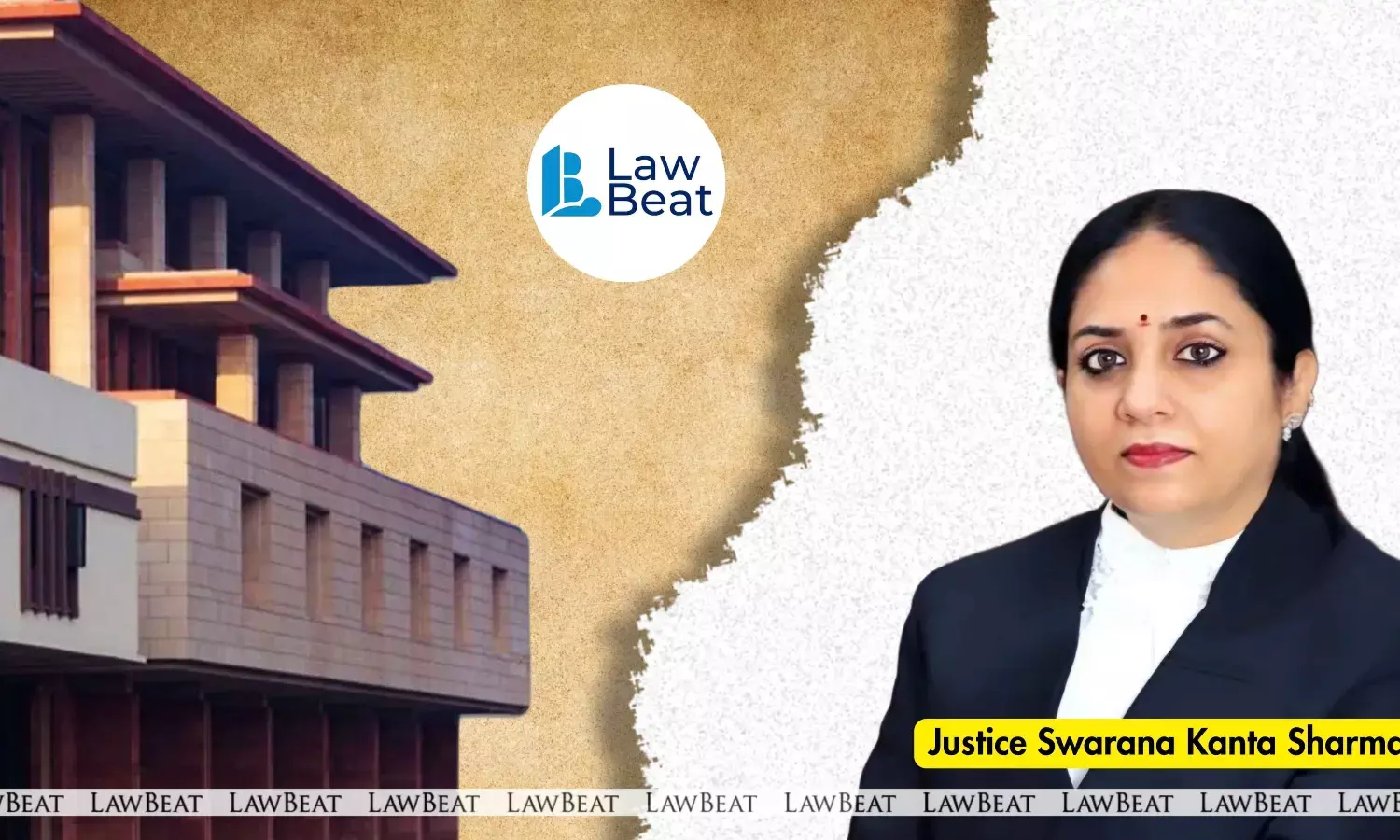Wife Can’t Be Denied Maintenance Merely Because She Was Employed But Had To Quit For Childcare: Delhi HC

The Delhi High Court has held that a wife cannot be denied interim maintenance merely on the ground that she is educated and was previously employed, if she had to give up her job due to the responsibilities of caring for a minor child.
The Single Bench of Justice Swarana Kanta Sharma made the observation while hearing a Revision Petition filed by the husband against an order of the Family Court directing him to pay interim maintenance to his estranged wife.
The petitioner-husband contended that the respondent-wife is highly qualified and was working as a school teacher, earning between Rs. 40,000 to Rs. 45,000 per month, including income from tuition.
On the contrary, the wife submitted that she is currently unable to work due to her responsibilities as the sole caregiver of their minor son and that her earlier employment cannot be used as a basis to deny maintenance.
The Counsel for the wife argued that the respondent had to give up her teaching job because of long commute hours and the absence of job opportunities near her residence. Without family support, she was unable to manage both her employment and the responsibilities of single-handedly raising her child.
Justice Sharma observed, “This Court finds the explanation both reasonable and justified. It is well settled that the responsibility of caregiving to a minor child falls disproportionately upon the parent with custody, often limiting their ability to pursue full-time employment, especially in cases where there is no family support also to take care of the child while the mother is at work. In such circumstances, the cessation of employment by the respondent cannot be viewed as voluntary abandonment of work, but as a consequence necessitated by the paramount duty of child care.”
In support of its reasoning, the Court relied on the Supreme Court’s ruling in Rajnesh v. Neha & Anr. (2021), which recognized that the decision of a qualified woman to forego employment to care for the family must be duly considered while deciding maintenance.
The Court noted that the wife was previously employed as a guest teacher but had to discontinue due to the practical challenges of managing work and childcare as a single parent.
The Court upheld the family court’s approach in granting maintenance only for the period after the wife left her job, having correctly assessed the husband’s notional income; a practicing advocate, for the relevant period.
However, it took note of the fact that the Family Court had not examined the petitioner-husband’s income affidavit or bank statements while determining the quantum of maintenance. "This Court is therefore of the considered opinion that the learned Family Court has committed no error in appreciating the factual matrix and applying the correct legal principles, including the ratio laid down in Shailja v. Khobbana: (2018) 12 SCC 199, wherein the Hon‟ble Supreme Court had held that mere capability to earn is not the same as actually earning, and being capable of earning alone is not a valid reason to reduce maintenance," the Court observed.
The Single Judge added, "It is not the potential earning capacity of the wife but her actual income at the relevant time that is to be considered while determining the amount of maintenance. Thus, the learned Family Court has rightly observed that there exists a material distinction between being "capable of earning‟ and "actually earning‟."
Accordingly, the Court remanded the matter back to the Family Court for a fresh assessment of the interim maintenance application, directing that the petitioner-husband shall continue to pay interim maintenance as previously ordered, pending further proceedings.
"...taking into account the fact that income affidavit filed by the petitioner herein was not taken into consideration, this Court deems it appropriate to remand the matter back to the learned Family Court. The Family Court shall reconsider the application for interim maintenance afresh, specifically taking into account the income affidavits and bank statements filed by both parties, and pass a reasoned order in accordance with law. The said exercise shall be completed within a period of one month from the date of receipt of this order," the Court ordered.
Additionally, the Court directed, "In the meantime, as an interim arrangement, the petitioner shall continue to pay a sum of ₹7,500/- per month to the respondent/wife and ₹4,500/- per month to respondent no. 2/minor child, which shall be without prejudice to the final determination by the learned Family Court, and any amount paid shall remain adjustable in future maintenance. The payments shall be made regularly before the 10th day of each calendar month either directly or by deposit in the bank accounts of the respondents."
Accordingly, the Court disposed of the Revision Petition.
Case Title: Praveen Kumar v. Pooja Arya
Appearance:
Respondent: Advocates Mayank Maini, Anmol Chadha, Biman Sethi, Aryan Sharma, Ankit Verma
